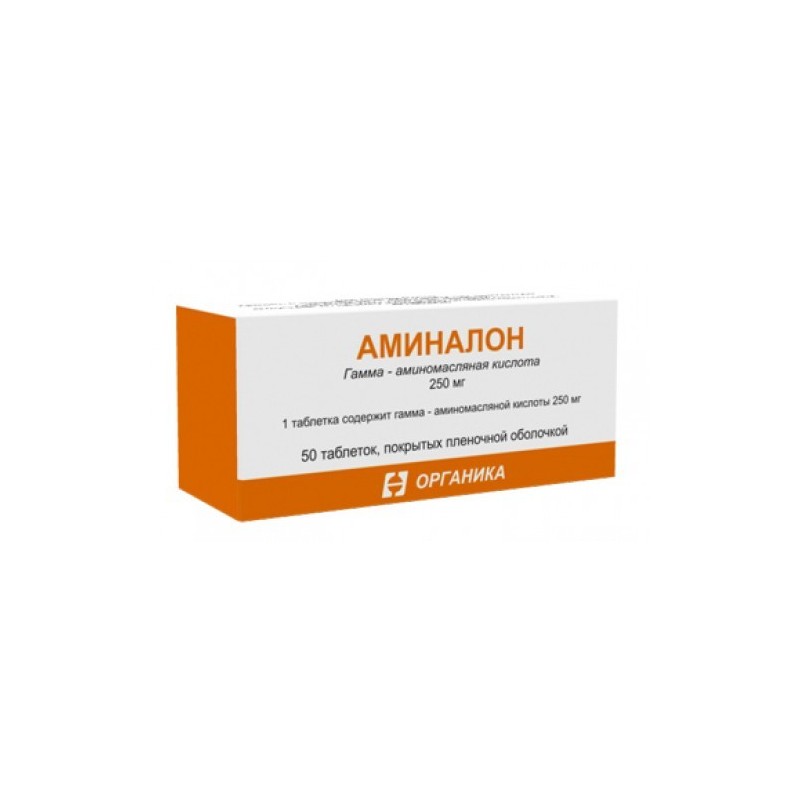



Gamma-aminobutyric acid (GABA, gamma-aminobutyric acid) is a biogenic amine, restores metabolic processes in the brain, promotes the utilization of glucose by the brain and the removal of toxic metabolic products from it, and provides normalization of the dynamics of nerve processes in the brain. Increases the productivity of thinking, improves memory, has a mild psychostimulating effect, a positive effect on the restoration of movements and speech after a violation of cerebral circulation. It helps to reduce and stabilize increased blood pressure and reduce the subjective symptoms of arterial hypertension (dizziness, sleep disturbance).
It has a moderate antihypoxic and anticonvulsant action. In patients with diabetes, reduces the glucose content, with normal glucose in the blood has the opposite effect (due to glycogenolysis).
Pharmacokinetics
Absorption is fast, fairly complete. Cmax in the blood plasma is reached after 60 minutes, then the concentration rapidly decreases. After 24 hours, GABA is not detected in the blood plasma.
Conditions after cerebral circulatory disorders; after traumatic brain injury. Atherosclerosis of cerebral vessels with symptoms of softening of the brain. Alcohol encephalopathy and polyneuritis. Headache, dizziness, sleep disorders in arterial hypertension. Cerebral palsy; effects of traumatic brain and birth injury in children; mental retardation in children; kinetozy.
| 1 tab. | |
| gamma aminobutyric acid | 250 mg |
Gamma Aminobutyric Acid is marketed under different brands and generic names, and comes in different dosage forms:
| Brand name | Manufacturer | Country | Dosage form |
|---|---|---|---|
| Aminalon | Organica | Russia | pills |
| Aminalon | BPMP | Belarus | pills |
No customer reviews for the moment.
The daily dose for adults is 3-3.75 g. For children aged 1 to 3 years old, 1-2 g / day; from 4 to 6 years old - 2-3 g / day; older than 7 years - 3 g / day. The daily dose for children and adults is divided into 3 doses and taken before meals. The course of treatment lasts from 2-3 weeks to 2-4 months.
For the prevention and treatment of adult kinetoz - 500 mg 3 times / day for 3-4 days, for children - 250 mg 3 times / day for 3-4 days.
Possible: nausea, vomiting, blood pressure lability, dyspepsia, fever, sleep disturbance.
Hypersensitivity to GABA.
With simultaneous use may enhance the action of benzodiazepine derivatives, many hypnotics and antiepileptic drugs.
In the first days of treatment, fluctuations in blood pressure are possible.
Studies and clinical trials of Gamma Aminobutyric Acid (Click to expand)